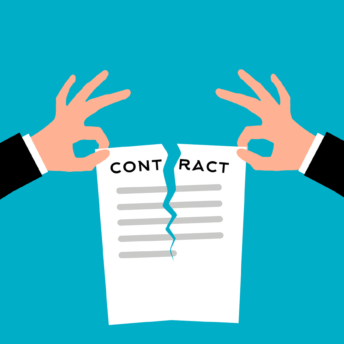Many people make the mistake of confusing a Lasting Power of Attorney with a Will – or feel that possessing a Will inevitably qualifies them for some form of power of attorney. While a Will protects your beneficiaries after your death, a Lasting Power of Attorney protects your personal interests during your lifetime – up to the point of death. The power of attorney ceases upon your death, and your Will takes precedence. There is no duplication so it is important to have both. There may be instances where it is necessary to challenge the appointment of the attorney or object to the lasting power of attorney if issues subsequently emerge with the appointed attorney.
In essence, by creating a Lasting Power of Attorney, you authorise someone you trust to act on your behalf and in your best interests while you are still alive. When you require someone to act on your behalf, it is frequently too late to acquire a Lasting Power of Attorney.
Appointing someone to manage your affairs and make important decisions on your behalf is referred to as appointing them power of attorney. This is accomplished through the use of a legally enforceable document. The designated individual is referred to as an attorney. Although powers of attorney come in a variety of forms, they consistently contain two key characteristics:
- The individual appointing the attorney must execute the power of attorney document while fully capable of comprehending what they are agreeing to.
- The individual’s power of attorney terminates upon his or her death (or when specified in the document)
We examine these issues in greater detail in this article, can a lasting power of attorney be challenged and also describe the mechanics of using a power of attorney. We are a multidisciplinary law firm with offices in Hale, South Manchester, and London. We are easily accessible to our clients throughout the country. Each power of attorney that we create for our clients is drafted by a highly qualified and experienced solicitor.
It is possible to create your own Power of Attorney, and numerous websites make this possible. However, keep in mind that the consequences of drafting a Power of Attorney can be far-reaching, with severe consequences if done incorrectly. This is why we strongly advise you to use the services of an experienced solicitor.
Please click here to find out more about our Wills and Lasting Power of Attorney Services.
Free Initial Telephone Discussion
For a free initial discussion on how we can help you deal with the legal implications of creating a lasting power of attorney, get in touch with us today. We are also experienced in dealing with all aspects of Wills and Probate and we will review your situation and discuss the options open to you in a clear and approachable manner. Early expert legal assistance can help ensure you avoid the stress of dealing with these issues on your own. Simply call us on 0345 901 0445 or click here to make a free enquiry and a member of the team will get back to you.
Why would you need to appoint a Power of Attorney?
There are several reasons why you may require another person’s assistance in making decisions or acting on your behalf:
- This may be a temporary circumstance, such as being hospitalised and requiring assistance with daily tasks such as paying bills.
- If, for example, you have been diagnosed with dementia and will eventually lose the ability to make your own decisions, you may need to make longer-term plans.
Understanding Power of Attorney – what does “mental capacity” mean?
Mental capacity is defined as the capacity to make or communicate specific choices when the circumstances warrant it. Mental capacity requires an understanding of the situation at hand, why it is necessary, and the likely outcome of the decision.
Certain individuals will be capable of decision-making in certain situations but not in others. For instance, they may be capable of deciding what to cook for dinner but incapable of comprehending or arranging for home insurance. Alternatively, their capacity for decision-making may fluctuate on a daily basis.
Comprehending or communicating more slowly does not indicate a mental capacity deficit. Dementia, for example, does not always imply an individual’s inability to make independent choices. Where an individual has difficulty communicating a decision, every effort should be made to remove those barriers and assist the individual in making their own.
Are there different types of Power of Attorney?
There are several different types of powers of attorney, and you can establish more than one:
Ordinary power of attorney
This includes financial decisions and remains valid as long as mental capacity is retained. It is appropriate if you require coverage for a limited period of time (hospital stay or vacation), have difficulty getting around, or wish for someone to act on your behalf.
Enduring powers of attorney (EPA)
In October 2007, EPAs were phased out and replaced by LPAs. However, if an EPA was created and signed prior to 1 October 2007, it should remain valid. An EPA governs property and financial decisions and takes effect if you lose mental capacity or wish for someone to act on your behalf.
Lasting power of attorney (LPA)
A lasting power of attorney (LPA) is a legal document that empowers someone you trust, your attorney, to make decisions on your behalf if you ever lose mental capacity or no longer wish to make decisions for yourself. An LPA safeguards your financial affairs, as well as your health and care. It becomes effective if you lose mental capacity or no longer desire to make your own choices. If you wish to ensure you are protected in the future, you would establish an LPA.
LPAs are classified into two types:
- LPA used to make financial decisions
- LPA for the purpose of making health and care decisions.
LPA used to make financial decisions
A financial LPA can be used while you retain mental capacity or you can specify that it should take effect only if you lose capacity.
An LPA for financial decisions may include the following:
- purchasing and selling real estate
- mortgage repayment
- investing capital
- settling accounts
- arranging for property repairs.
You can restrict your attorney’s decision-making authority or empower them to make all decisions on your behalf.
If you’re establishing an LPA to handle financial decisions, your attorney must maintain accounts and keep their funds separate from yours. You can request regular updates on how much money is spent and how much money is available. If you lose mental capacity, these details can be communicated to your solicitor or a family member. This adds an additional layer of defence.
LPA used for health and care decisions
This covers health and care decisions and is only applicable once mental capacity has been lost. In general, an attorney can make decisions about the following:
- where you ought to reside
- your medical treatment
- what you should eat
- who you should contact
- which social activities you should participate in.
Additionally, you can give your attorney special permission to make life-saving treatment decisions.
When someone is appointed as an individual’s attorney, are family notified?
When someone is designated as an individual’s attorney, relatives are not automatically told. The donor has the option of notifying anyone, and these individuals will be identified in the LPA as persons to be notified. The person who will be contacted will receive a letter informing them that the donor is executing a certain sort of LPA and designating specific attorneys. If the donor does not specify who should be told, the only people who will be immediately aware of the LPA are the individuals specified in the document, as they will be required to sign it.
Are relatives permitted to oppose to the appointment? If so, what are some of the justifications?
If someone has been designated as a person to be notified, they will get a letter from the Office of the Public Guardian notifying them that the donor intends to register the LPA and identifying the nominated attorneys. After being notified, the individual has the opportunity to object to the LPA. Their objection may be based on a ‘factual objection’ or a ‘prescribed grounds objection’.
Examples of Factual Objections
Someone can object based on factual objection if they have been listed as a person to be notified and:
- The donor or an attorney has died.
- The donor and the attorney were married or were in a civil partnership and have now divorced.
- An attorney who has been chosen does not have mental capacity.
- An attorney has chosen to stop acting as attorney.
- The donor or an attorney has become bankrupt.
In order to object based on factual objection, the person to be notified must object within 3 weeks of receiving the notification of registration.
Examples of objections on prescribed grounds
In order to make an objection based on prescribed grounds, the person notified must be able to provide evidence to support their objection.
Someone can object based on prescribed grounds if the LPA has already been made and they believe:
- The LPA isn’t legally correct.
- They don’t believe the donor had the mental capacity to make an LPA.
- The donor cancelled their LPA when they regained capacity.
- Fraud had been committed, e.g., someone forged the donor’s signature.
- The donor was pressured into making the LPA.
- An attorney is acting against the donor’s best interests.
What happens if issues arise with the chosen attorney, and how may this be resolved?
An attorney must always operate in the best interests of the donor. Without the permission of the Court of Protection, an attorney may not make large financial gifts to individuals, pay themselves a fee (unless they are a professional body and the fee is authorised in the LPA), combine their own finances with those of the donor, use their position to benefit themselves or make a personal gain, or purchase something from the donor at a below-market rate.
If an attorney looks to be working beyond their scope of practice or against the donor’s best interests, this may be cause for objection. If anybody believes that an attorney is not acting in the donor’s best interests or is misusing their position and wishes to question the attorney’s appointment or specific conduct, they may contact the Office of the Public Guardian, which regulates these roles.
The Office of Public Guardian may investigate an attorney’s acts and may direct a court officer to conduct an investigation. The Office of Public Guardian may then elect to terminate the attorney’s participation in the LPA if they have adequate proof. The Court of Protection may revoke an LPA or take action against the attorney in some serious instances.
How we can help
We have a proven track-record of helping clients create a lasting power of attorney. This also includes all of the different types, even if you need more than one. We are a multidisciplinary firm and have all the expertise inhouse to satisfy the most exacting requirements of our clients. We will guide you through the necessary legal due diligence in a comprehensive and timely manner. We firmly believe that with the right solicitors by your side, the entire process will seem more manageable and far less daunting.
How to Contact Our Wills and Probate Solicitors
It is important for you to be well informed about the issues and possible implications of creating a Lasting Power of Attorney. However, expert legal support is crucial in terms of ensuring your wishes are met as you would want them to be.
To speak to our Wills and Probate solicitors today, simply call us on 0345 901 0445, or click here to make a free enquiry. We are well known across the country and can assist wherever you are based. We also have offices based in Cheshire and London.





